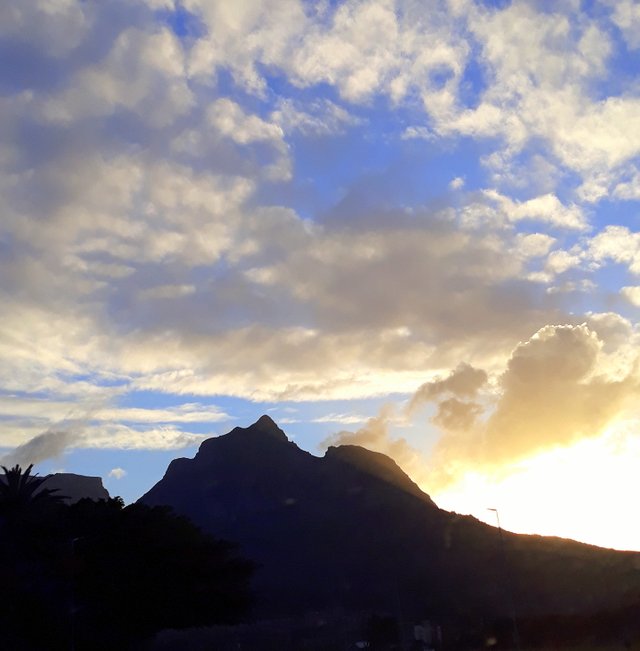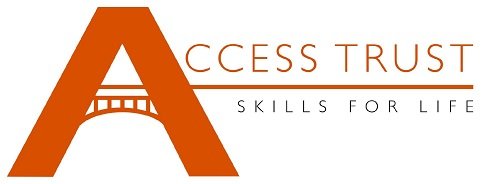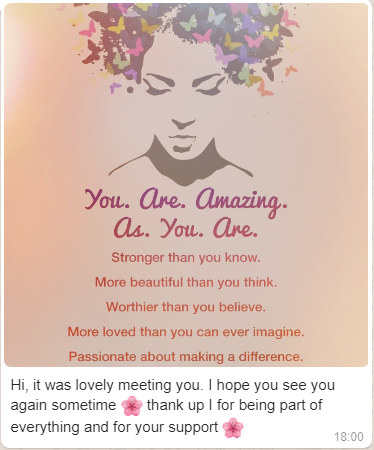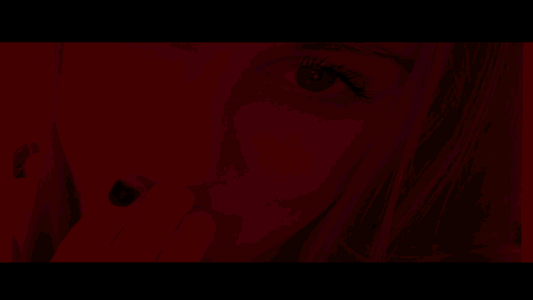The bittersweet closing of a circle

Four months ago I shared my relief at having completed a piece of work. It was a poignant and reflective post, as is this one, because that circle is now really closed.
As some of my regular readers know, I've been "offline" for a while a week or so, and although fun was had, including a long-overdue catch-up with @jaynie, the main reason for the trip was to attend the closing function for the Access Trust.

Just the Monday before, though, I answered the phone, and heard the familiar, "Hello, Fie-ona, I hope you are well?"
I thought it was just following up my email to confirm the date, time, etc. But no.
"I've been working on a draft programme for the evening, and would you please give a brief, historic overview of the Trust?"
Ummm....it would have been mean to say no. Effectively I'd written "the book". Of course, I was being given a week's warning which, under other circumstances would have been quite acceptable. But "other circumstances" did not prevail: it was an already busy week which seemed to just get busier and the majority of my preparation was between 4 and 5.30 am, one morning, and on Sunday afternoon when it was a mixed blessing not to have a Sunday Supper. Anyone who has prepared a speech or presentation knows that the speech may take all of 15 minutes, but the preparation is at least 100 times that.... So when we departed McGregor the following Monday, I was armed with a short (very short) PowerPoint presentation and five pieces of paper on which I'd printed what I'd come up with at that point, knowing I'd have to spend the best part of Tuesday afternoon tidying it up and getting it into my head. I'm not good at learning things by heart...
The evening came and I do not have photos - I hope to get some and then I'll share those in a separate post - but it was everything and more than I had anticipated.
In the meantime, I thought I'd share what I had to say (I've incorporated the blurb from the PowerPoint slides):
Chairperson, Dr Margaret Elsworth, members of the board of trustees, honoured guestsHighlights for me, in addition to connecting with longstanding friends and colleagues, were the three young people I featured in that last post, and who are also in "the book", shared their stories and what the Access Trust had done for them.My task, this evening, is to give you the headlines from the document “The Access Trust – Closing the Circle: Two decades advocating and supporting Technical and Vocational Education and Training in the Western Cape”, and in so doing, I will be brief, spending most of my time on the people central to its evolution as well as a few of the hard facts.
As I stand here, I remember that just ten short years ago, many of us were at a similar gathering. We were celebrating ten successful years of doing what the founding trustees set out to do: enabling deserving and capable young people to access technical and vocational education and training (TVET). South Africa was just some four years into democracy, and the founding vision of accessible TVET for all was a mere glimmer on the horizon.
That evening was a privilege: many of you were there, but sadly, some of the founding trustees are no longer with us, and this celebration must also be a testimony to them. So, in brief, where did it all begin? It’s too simple to say that what became the Access Trust emerged from the African Scholar’s Fund. It did, but it really started, so Margaret Elsworth told me, over Sunday lunch in Bob St Leger’s home. Bob, with Margaret as the Founder, became a founding trustee, and fulfilled at different times, the role of chair and was the trust’s longest serving treasurer. A chemical engineer, he loved young people and was a passionate advocate not just for training, but for TVET and for growing timber. He was gentle and firm with very twinkly eyes as he did that. I know – I was one of his not-so-young “victims”.
Margaret and Bob, spurred on by the principals of the then Technical Colleges, gathered a group of like-minded individuals and set up the Technical Colleges Student Aid Trust. These included two collage principals, the late Peter Barry and current chair, Jannie Isaacs who, when he retired as CEO of the College of Cape Town had navigated a series of profound changes in the sector.
This brings me to the environment in which the Trust did its work: not only was the environment murky or, at best, fluid, setting out to raise money to train young motor mechanics, financial administrators and professional cooks was most definitely not considered sexy. Not deterred, this determined group of people who, with seed funding from the colleges which partnership was integral to the entire project, forged ahead. Another founding trustee and first employee, who grew into the responsible role of Executive Trustee, was Debby Chuter who developed a systematic approach to selecting awarding and managing bursaries which, I am told, was subsequently adopted by the colleges.
When we celebrated the tenth anniversary, and because of the changes in policy, environment and nomenclature, TECSAT became the Access Trust. The organisation’s star was about at its zenith – certainly in terms of the funds at its disposal and the number of bursaries it was awarding each year. Much of that success is attributable to the dedicated board, and more especially to Debby Chuter. Thank you, Debby for the more than 12 years that you gave to the Trust and the firm foundation you established.
I won’t bore you with the other, essential, behind-the-scenes work associated with the name change, except to say that the timing was serendipitous: the trust deed had to undergo some serious amendments to comply with SARS and a range of requirements for public benefit organisations. This work would not have been possible without Paul Norton who, as then recently retired CEO of the DG Murray Trust, joined our board. He also succeeded Bob St Leger as treasurer and fulfilled that role for far longer than he intended, including after he had retired as a trustee.
Now let me talk about some of the numbers:
The first awards were made in 1999 from seed funding of R 64 580. The first annual report (for the period ending December 2000) records that an amount of R 166 371 had been raised and the following year, 96 bursaries were awarded.
In total, nearly R30 million was raised and 2,790 bursaries were awarded. In 2007 we awarded most bursaries, in a single year - 258 from a total income of R1,3 million as opposed to 2013 when the income was R4 million when only 199 bursaries were awarded. The average value of bursaries had, between 1999 and 2007 increased by 400%. Some of the increased costs was because we had moved from simply financial to include social support to all bursars which included workshops, college visits ,one-on-one sessions as well as more structured included support into the workplace and tracking, compounded by the exponential increase in the cost of training.
The phenomenal growth that we saw, attributable as much to the funds available as the demand for bursaries which just grew, meant, as noted, that we had to grow capacity. Debby had already increased her time substantially and was virtually fulltime, supported by bookkeeper, Zena Stanfliet and the first Student Support Officer, Susan Schmid. Also a founding trustee, passionate about young people, Susan took a leave of absence from the board to fulfil this important task.
Let me turn to the important role of donors. In some cases, their contributions went well beyond just money. Not that the money wasn’t critically important, it was, but of equal value was the nature of the partnerships that developed. Representatives of some of these donors are here this evening, and without you, much of what was achieved would not have been possible, like St Andrews Church which mentored young people from disadvantaged communities and the Lions Club of Hout Bay, which works with the young folk of Imizamo Yethu, Garden Cities, itself a non-profit and the David Graaf Foundation.
Particular tribute must be made to the Swiss South African Co-operation Initiative (SSACI). At the time that the partnership began, it, too was a new kid on the block and its CEO went out on a limb, and together with Debby Chuter and Bob St Leger, crafted the first project. Central to this were the value-added services to bursars which started the Trust down on a journey that made it more than an administrator of bursary funds. This, and the mandatory external evaluations, as well as Ken Duncan’s support of internal reflection and research empowered the board and staff to make informed decisions about the organisation’s direction. Here, too, I acknowledge the work of Jeanne Gamble and her team, who undertook the initial research. I am also delighted to see Professor Joy Papier and Seamus Needham from the Institute for Post School Education at the University of the Western Cape, here this evening, and who also undertook valuable research that validated the work that the Trust was doing.
I am not done yet: I would be more than remiss if I were not to acknowledge the contribution of the people closest to the bursars. I have already mentioned Debby Chuter and her valuable contribution over her 13 years with the Access Trust. Lydia Dreyer - lovely to see you here this evening – succeeded her and was instrumental in the appointment of the trust’s first interns, and you will hear from two a little later. After a year, Lydia was succeeded by Rose Horne who did much to consolidate the work done by her predecessors. She was instrumental in exploring additional services that had a special focus on women and young girls at risk. With a significant network, she was responsible for drawing the trust’s work to the attention of the Premier’s Office, paving the way for the award received in 2016. After two years, Rose returned to public service and Helga Jansen-Daugbjerg was at the helm for the Trust’s final few years and had the unenviable task of overseeing the closure of the office.
Under Rose Horne’s watch, Asanda Gigaba joined the team and although she is now with sister organisation African Scholars’ Fund, her contribution to the wellbeing of bursars is not to be underestimated. A constant theme in my engagement with past bursars is that it was because of Asanda that they were able to succeed in their studies. ASF is lucky to have her.
In addition to the trustees I have already mentioned, I am privileged in my years in the chair to have had the counsel of longstanding trustee, Pazuna Stofile, who was joined by Adrian Strydom, Cassie Kruger and Ruben Richards who also succeeded me in the chair. Jannie Isaacs, current chair was always a quiet voice of candour and reason – not just from the colleges . I am not going to talk more about the Margaret Elsworth’s important contribution – Jannie will do that.
Needless to say, over the last few months, I have done much reflection on the twenty years of the Access Trust, with which I had an eleven-year association, including seven in the chair – longer than I was with any employer, project or other organisation. The significance of winding up the organisation reminded me of what I learned as a young fundraiser. That was thirty years ago, and as true then, as it is now, was that any organisation can only successfully raise funds for as long as there is a genuine need.
Having emerged in response to the dire need for bursaries in the TVET sector, at a time that the importance of funding TVET seemed to escape most people, especially given the then (and now) shortage of artisans, was beyond comprehension. Challenging though it was, to the founding trustees, it was a “no-brainer”.
In 2017, having navigated a series of policy and financial quagmires, including #feesmust fall, came the announcement that was the realisation of that original vision: no learner at a TVET college would pay fees. With no fees to pay, there was no longer a need for bursaries – or the Access Trust.
The then board of trustees, including Pazuna, Adrian, Cassie and new trustees Aneeka Jacobs and Joe-Mark Lippert, was faced with another no-brainer. TVET was accessible to all. In the absence of the need, the Access Trust’s job was done. Time to close the circle: mission accomplished.
Fiona Cameron-Brown
7 August 2018
Then, Asanda, a former staffer and student support, in tears, talked about how she had found herself working with the bursars, co-workers and board members.
And then, as I was writing this post, a WhatsApp arrived from the young intern who worked so hard with me on "the book", and whom I met face-to-face for the first time on Tuesday:

That brought a lump to my throat and a tear to my eye and made me grateful, once again, that I had made the effort to go.
Post script
So, now I am back but it's the usual weekend activities, so I'm still not really here. It's intended, as they used to say, "Normal programming will resume next week"!


Posted from my blog with SteemPress : http://fionasfavourites.vornix.blog/2018/08/09/the-bittersweet-closing-of-a-circle/
I was wondering what you were up to, busy as usual. As they say, give a busy person something to do, they always accomplish it with zest and vigor.
Interesting read, visiting from #steemitbloggers today.
Thanks, Joan!